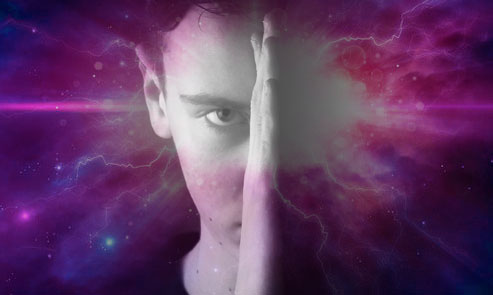
Years ago, people saw support groups and stress management techniques as harmless adjuncts to the medical treatment of those with serious illnesses. Recently, however, research has shown that patients who use techniques such as mindful meditation not only are less stressed emotionally by their illness but also experience better physical health. This research is, in fact, showing how thoughts, beliefs, and emotions influence the health of the body.
In an issue of Scientific American, the neurologist Martin Portner describes the case of Gretchen, a participant in a study on the viability of a testosterone patch to treat hypoactive sexual desire disorder, a condition in which a person’s libido is so diminished that he or she feels no sexual interest or attraction. Testosterone, a hormone produced by the testes in males and the ovaries in females, is associated with sexual arousal. Gretchen had felt no sexual desire ever since undergoing an operation that removed her ovaries.
After wearing the patch for 72 weeks, Gretchen felt the stirrings of desire again. “It can only be because of that patch,” she reported. Shortly thereafter she was able to make love with her husband again and experience an orgasm for the first time in years. But the most amazing part of the story is that Gretchen, unbeknownst to her, was part of the study’s control group and the patch given to her was a placebo with no testosterone in it whatsoever. The return of Gretchen’s sexual appetite was clearly related to a change in her neural wiring, some literal change of mind of which she was not even cognitively aware. Yet, it happened. And that change was felt throughout her body.
Most of us are more familiar with psychosomatic disease than with psychosomatic wellness. We know that we can worry ourselves sick, and we suspect that we can laugh ourselves to health. Even so, medicine gives little credence to the idea that psychosomatic health can be achieved. After all, we cannot knowingly administer a placebo to ourselves, in the same way that it is impossible to tickle yourself.
Societies that rely on traditional healers―medicine men and women―have long understood the power of the mind to either heal or kill. At times, shamans resort to great pomp and ceremony to mobilize the mind’s ability to heal the body because their complex ceremonies activate the prefrontal cortex to create health. In modern societies, we have largely declared these practices to be superstition or quackery; “placebo” is even a term of dismissal in everyday conversation. (The irony is that our modern-day “ceremony” consists of giving the patient a sugar pill, a tablet that contains no pharmaceutical ingredients.) Testing new medicines against a placebo is a common practice for determining the efficacy of all medications, which is, in effect, strong evidence that the mind alone does have the power to soothe inflammation, calm nerves, and influence organs and tissues of the body to return to a state of health.
The placebo effect and psychosomatic wellness are the result of tapping into the healing potential of the mind, which has been common practice in humankind for thousands of years. By dismissing the placebo effect, Western medicine has, in reality, failed to investigate how this phenomenon can give us a glimpse into the immense power of the prefrontal cortex.
The mind can be programmed to purchase vehicles that will make us feel like we are young again, and dresses that promise to make the hurt of depression go away. The mind can even be programmed to go against every instinctual survival function ingrained through millions of years of evolution.
As I have come to understand the capabilities of our mind, I realize that you and I and everyone can use these faculties consciously to create psychosomatic health. In effect, we will be able to make an intentional decision to heal ourselves from physical and emotional disorders, without having to resort to trickery.
.







